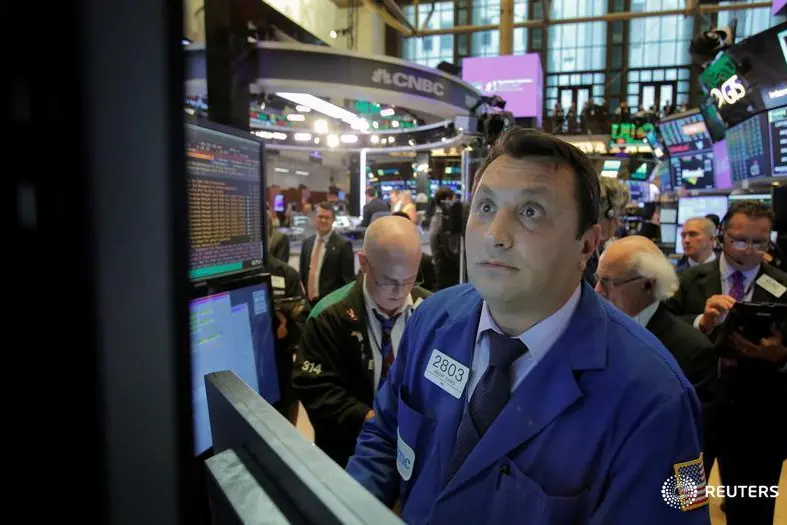PHOTO
LONDON - A mounting sense of pessimism among equity analysts adds a new warning signal about global growth. If the past is a guide, it means bad news exacerbated by trade tensions, gradual U.S. monetary-policy tightening and rising corporate borrowing costs could get worse.
For the first time since 2013, no country in the MSCI World Index, which covers 23 developed market economies, is seeing more upgrades than downgrades to analysts’ forecasts of company earnings, Morgan Stanley says. The phenomenon is a shift from six months ago, when the balance was tilted in favour of raised estimates in 17 countries. And it has in the past two decades usually coincided with either a U.S. or euro zone recession, as defined by the National Bureau of Economic Research and the Centre for Economic Policy Research, respectively.
There’s no recession as yet, but growth is slowing. Poor retail sales and production data last week added to concern about the United States, and Monday brought more bad news from China, where the Association of Automobile Manufacturers said car sales slumped nearly 16 percent in January from a year earlier. Italy slipped into recession at the end of 2018 and Germany narrowly missed the same fate: its GDP grew 0.02 percent in the last quarter, which Deutsche Bank analysts calculate was less than the Euromillions’ Friday lottery jackpot of roughly 160 million euros.
Central bankers are paying attention. U.S. Federal Reserve Chairman Jerome Powell is stressing patience rather than pushing on with rate rises while European Central Bank arch-hawk Klaas Knot of the Netherlands advocates restraint. And more realism should in theory make investors less vulnerable to nasty shocks from important releases, such as surveys of purchasing managers that will be released on Thursday.
But the weight of bad numbers may test investors’ patience. The Citi Economic Surprise Index for the Group of 10 advanced economies earlier this month showed data undershooting expectations by the biggest margin since 2013. Also, the year-to-date number of mentions of “slowdown” in company transcripts is at its highest ever, on Morgan Stanley’s count. That has in the past suggested downside risks to consensus estimates.
History is not bound to repeat itself. But the speed with which synchronised global growth turned into a broad-based slowdown and the limited room for monetary policy stimulus are concerning. Analysts have now joined the cautionary chorus.
On Twitter https://twitter.com/swahapattanaik
CONTEXT NEWS
- For the first time since 2013, no country in the MSCI World index is seeing more earnings upgrades than downgrades, according to Morgan Stanley analysts. They used a three-month rolling average of 12-month forward earnings to make the calculations.
- The phenomenon has since the 1980s roughly coincided with either a U.S. or euro zone recession as defined by the National Bureau of Economic Research or the Centre for Economic Policy Research respectively, the bank said.
- For previous columns by the author, Reuters customers can click on PATTANAIK/
- SIGN UP FOR BREAKINGVIEWS EMAIL ALERTS http://bit.ly/BVsubscribe
(The author is a Reuters Breakingviews columnist. The opinions expressed are her own.)
(Editing by John Foley and Martin Langfield) ((swaha.pattanaik@thomsonreuters.com; Reuters Messaging: swaha.pattanaik.thomsonreuters.com@reuters.net))





















